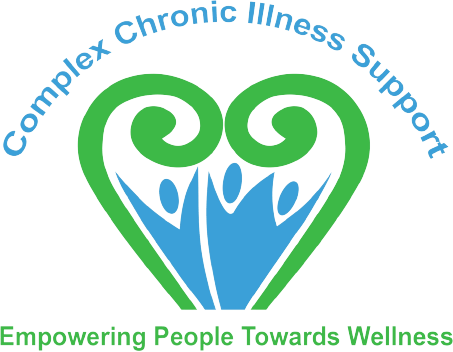Original Article can be found here: https://www.nzherald.co.nz/rotorua-daily-post/news/chronic-fatigue-syndrome-support-group-expands-to-rotorua/SOESJSGMWCS5YB75PCUBOULBWM/

Lachelle Richardson was diagnosed with chronic fatigue in 2015. Photo / Stephen Parker
Lachelle Richardson has battled chronic fatigue syndrome for 11 years, but she’s only known that it wasn’t all in her head for two of those.
And now, news that a support group is to be expanded into the wider Bay of Plenty, including Rotorua, is music to her ears.
The Lynmore resident had always been sporty and active until her first child, now 13, was born.
“When you first have a baby your world changes anyway. I thought ‘I’ll fit into this’. Then I started becoming very tired,” Richardson said.
Over the years Richardson visited naturopaths and countless doctors but nothing helped.
Circumstances saw her move multiple times, have a second child, and catch both glandular fever and swine flu.
“All of these factors, I tried to make excuses for why it was happening. It was all circumstantial.”
Richardson was finally diagnosed with myalgic encephalopathy/chronic fatigue syndrome (ME/CFS) in 2015.
“I said [to the doctor] I’m in bed three days a week. I don’t know what’s wrong. Some days I can’t lift my head off the pillow. Even going to the bathroom is an effort, but some days I’m fine.”
Last year, Richardson did a course in Tauranga through the organisation Complex Chronic Illness Support to better understand what she was suffering from. She said it was life-changing.
People from 16 to 83 were in the support group which helped Richardson understand the illness.
Richardson said the support of the organisation had been phenomenal since completing the course and Rotorua would benefit hugely by having the group here.
Complex Chronic Illness Support (CCI) also helped Richardson’s husband understand the illness.
“At the start I couldn’t understand it so how could someone else?” Richardson said.
“This past year my life has been so much easier because he gets it. But we’re still learning together.”
For Richardson, every week is different. She naps almost daily and struggles to go one week without a day in bed.
“I’ve learned that my life is a journey. I kept thinking when I get better my life’s going to be better but it was actually about the journey,” she said.
“I’m not going to be 100 per cent but am I happy with 80 per cent?”
CCI’s senior Bay of Plenty field officer, Tina Richards, said the organisation planned to replicate what it was doing in Tauranga with courses for CFS sufferers.
For now, she has organised a monthly coffee group where people can talk, share ideas and ask questions.
Richards said there were an estimated two to four people per 1000 suffering from ME/CFS so there could be hundreds in the area.
“There are a lot of people under the radar with this condition. They know something is wrong and struggle to get answers. It’s really important for them to know there is help out there,” Richards said.
“There’s still scepticism around it because it’s invisible. People can put up with this for years before they do get a diagnosis.”
Symptoms of ME/CFS:
– Persistent and overwhelming fatigue
– Muscle and/or joint pains
– Cognitive dysfunction – impaired memory and concentration
– Sleep disturbance
– Digestive problems
– Sensitivities to light and sound
– Headaches/migraines
– Sore throat and/or enlarged lymph nodes
– Dysregulated temperature control – fever/chills
– Erratic heart rate, feeling faint or dizzy upon standing
– Anxiety and/or irritability
ccisupport.org.nz

